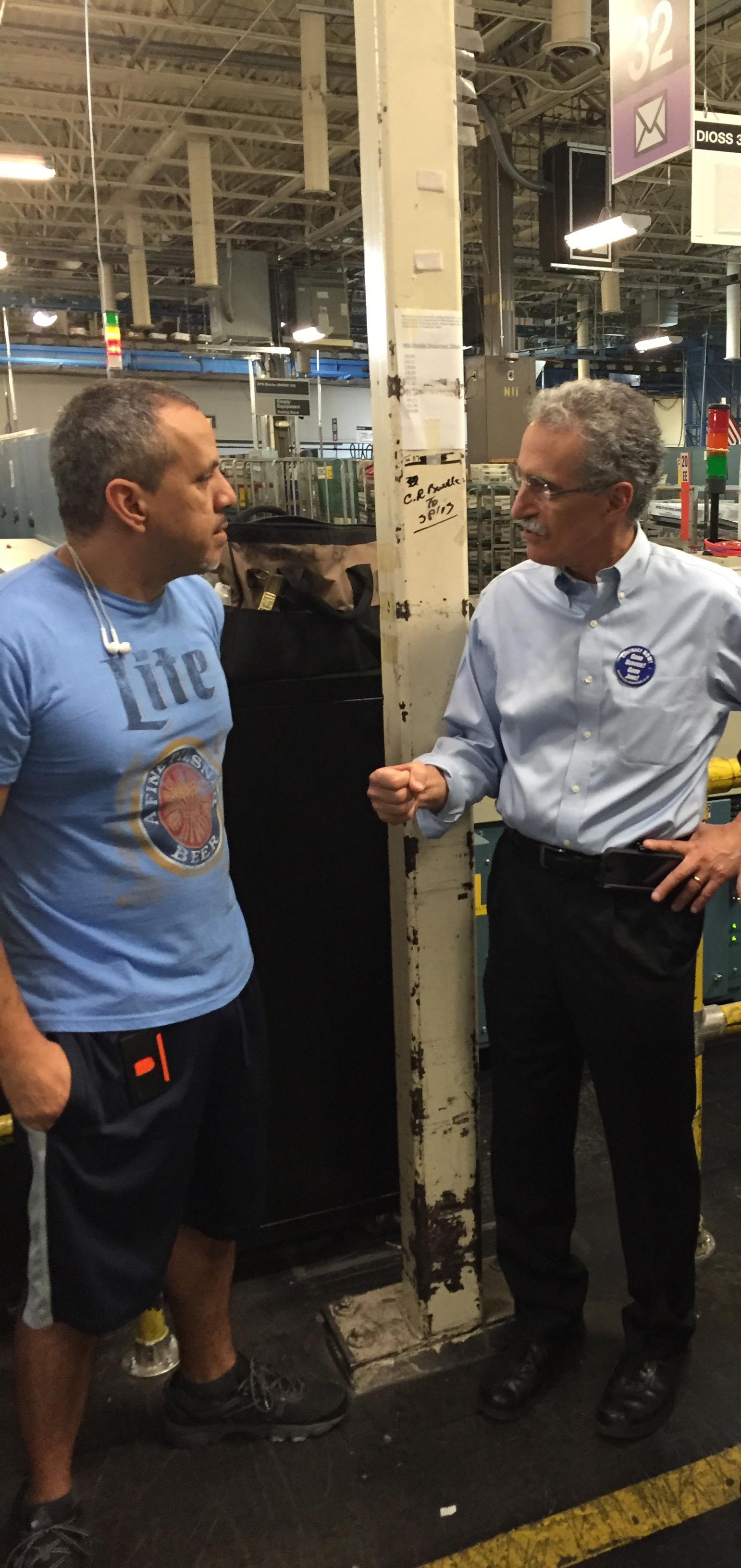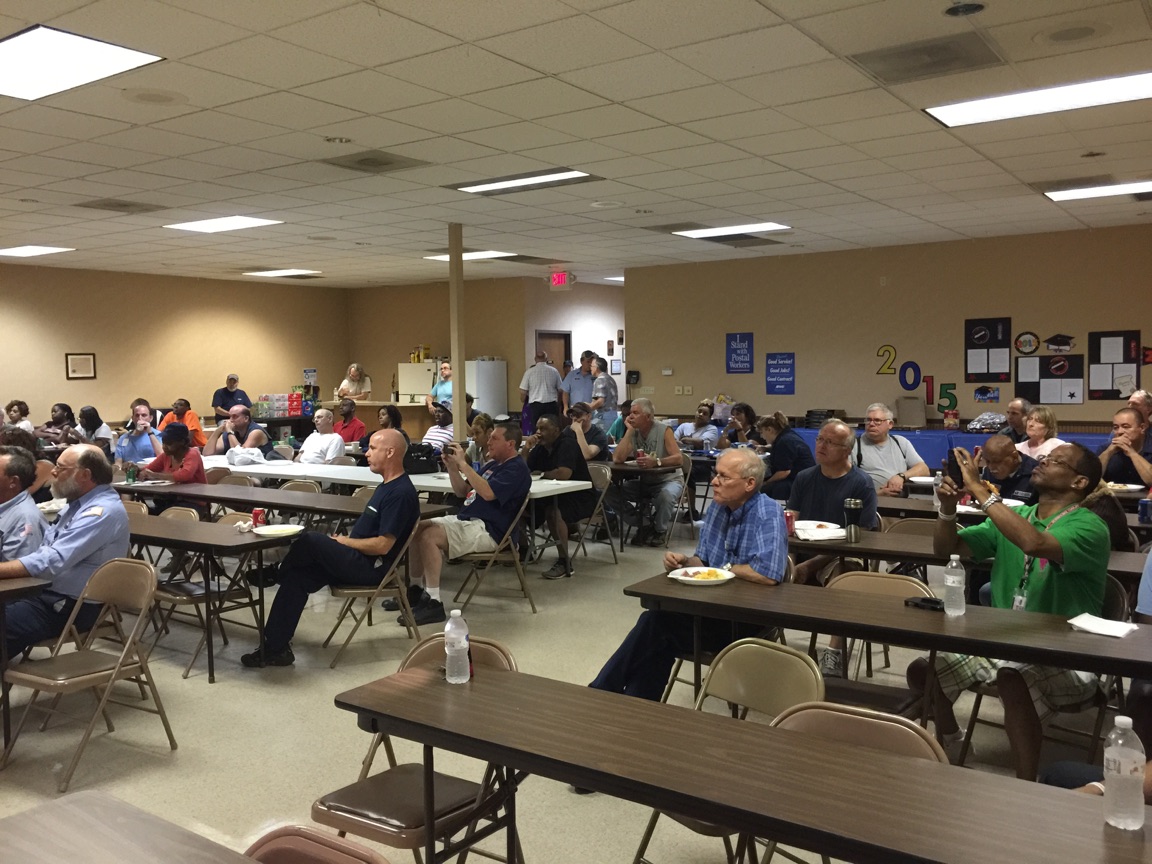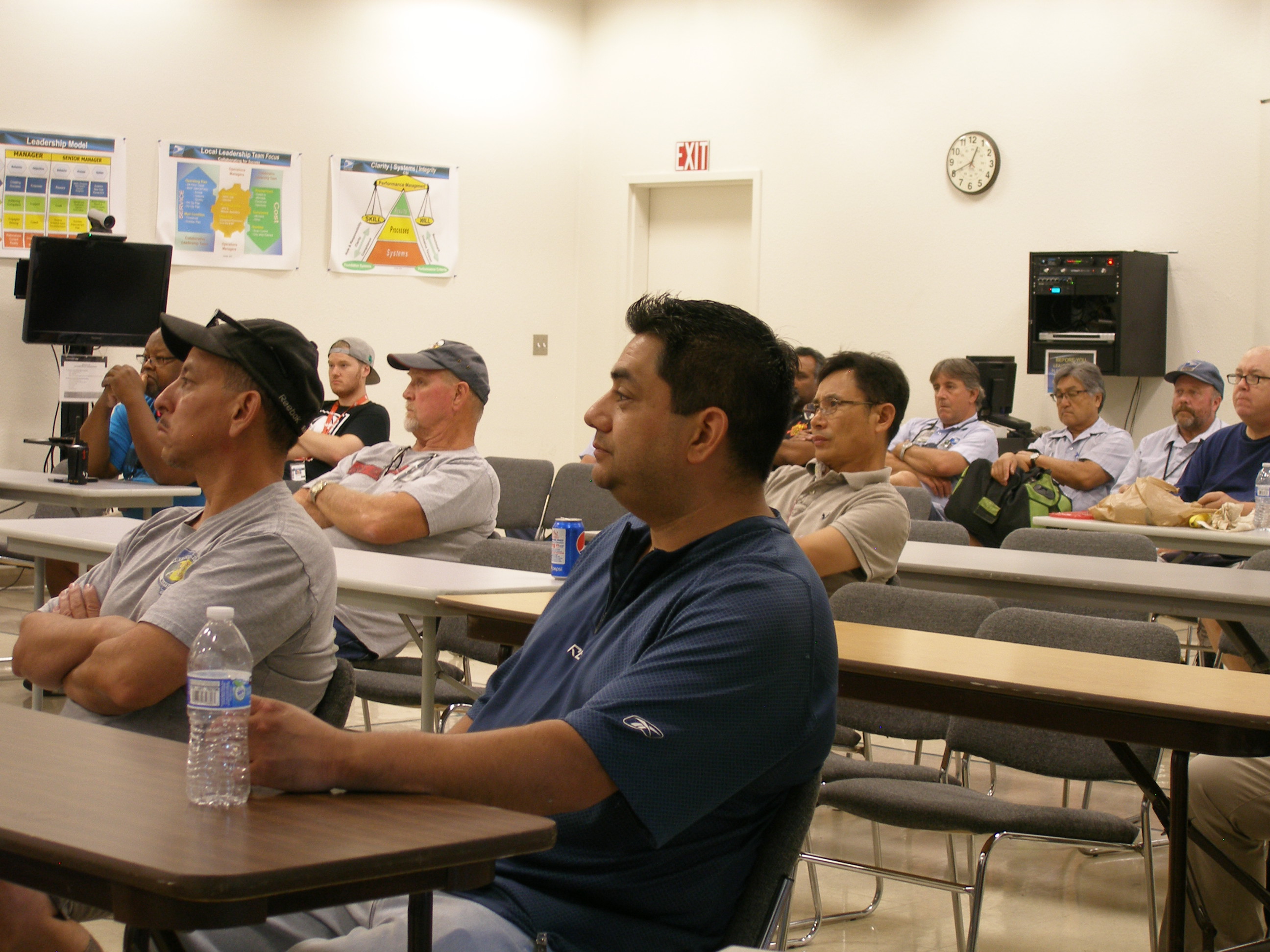Members Speak Out During ‘Town Hall’ Tour
November 1, 2015
(This article first appeared in the November/December 2015 issue of The American Postal Worker magazine.)
I am a firm believer that union leaders need to stay in touch and find many ways to listen to members’ ideas, concerns, questions and constructive criticisms. Leaders always have more to learn – and union members can be great teachers.

of the Orlando Processing & Distribution Center.
When I travel to various conferences and conventions, I often go to the workroom floor to meet and speak with postal workers. It is rewarding and informative.
Always seeking new ways to communicate directly with members and union activists, I recently held “town hall” meetings in 12 cities.
One goal of the meetings was to share with members some of the challenges facing the APWU, including the struggle for a new union contract.
More importantly, I wanted to hear members’ ideas and concerns first-hand.

I had the opportunity to interact personally with almost 1,000 APWU members, (In addition, I was able to meet many more with visits to the workroom floor in these same cities.)
Many important concerns were raised, ranging from unsafe staffing of automation, lack of rights for Postal Support Employees (PSEs), ongoing problems with Non-Traditional Full-Time (NTFT) assignments, mistreatment of injured workers, and management’s general lack of respect for employees.
One recurring topic was deep frustration with postal management’s disregard for good service for the people of our country. Examples abounded, from poor staffing of retail units and mail processing to the slowing down of the mail.
Hitting the nail on the head, one union member described management’s methods as “Mystery Math and Magic Time.” “Mystery Math” refers to management’s twisted accounting, which is designed to “prove” that slowing down mail and cutting service are saving money. “Magic Time” refers to management’s false claims that with the new “service standards” mail service is being provided in a timely manner.
We had good face-to-face discussions regarding the long delays in the grievance procedure that are an incentive for management to violate the contract at will and that workers themselves can solve many problems and grievances by uniting and mobilizing in the workplace, forcing local management to stop the violations and abuse.
It is my hope that the visits will help motivate members to be more involved with their local unions and tap into their interests and many talents to build a stronger APWU.
I encourage all members to attend union meetings, step up and serve as shop stewards and on various committees, sign up non-members, write articles, enforce workplace safety, and engage in our many union campaigns – from the fight for a good contract, to Stop Staples and building A Grand Alliance to Save Our Public Postal Service.
Think how much stronger we would be if every APWU member volunteered just one hour a month to the union cause. When you think of how much of our lives we spend on the job, it is well worth ensuring that it is the best, most secure and rewarding job possible!
Many members shared that they were honored that the union president took the time to meet with them. Actually, the honor was mine. Meetings like these will help me be a better leader.
These town hall meetings were held in conjunction with other travel. Obviously, it is impossible for me to hold town halls everywhere, but I will continue to hold similar meetings where and when I can.
But don’t wait for a town hall meeting to share your suggestions and ideas with your elected local leaders or your national leaders. I look forward to hearing from you!
Contract Negotiation Update
As we say in our union, “The Struggle Continues…” And our struggle to secure a new Collective Bargaining Agreement continues as well.
The mediation process, which began in June under the auspices of the Federal Mediation and Conciliation Service, has come to a close.
Mediation is designed to lead to a voluntary agreement, but after a series of meetings during the summer and early fall, there was no substantial progress.
The next step is “interest arbitration,” where each side makes its case before an arbitration panel. The arbitration award is final and binding.
The APWU National Negotiating Committee, the union’s attorneys, and much of the resources of the organization have been focused on preparing for arbitration. This includes consultation with economists and postal workers alike. These efforts have been coordinated by the Industrial Relations Department.
While it is hard to predict, I expect that by early 2016, we will have chosen an arbitration panel and will have begun the initial hearings.
Interest arbitration takes time. The last time we engaged in the process, it took 13 months to complete.
The doors are open for further informal discussions with management. If we can reach a voluntary agreement that is principled and fair to postal workers and the public, we will do so. If not, interest arbitration will run its course. We will keep you informed as events unfold.
In the meantime, your involvement is essential. So please wear your union gear every Thursday and let management know you stand together for Good Postal Service! Good Jobs! Contract Now!




